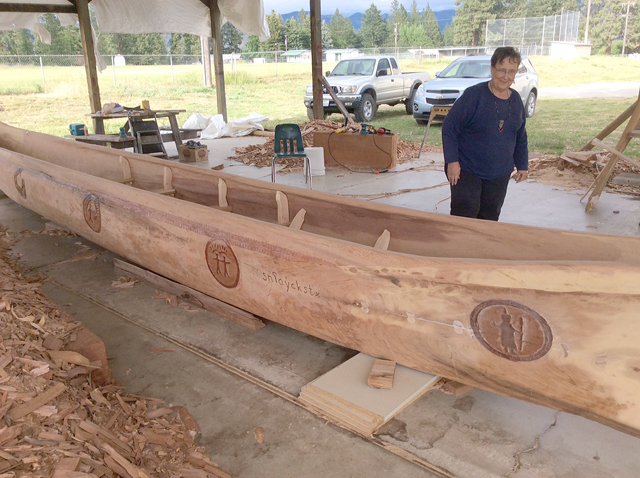River Talks — Stirring the waters of the Columbia River Treaty
Eileen Delehanty Pearkes has been researching and writing about the history and politics of water in the upper Columbia Basin since 2005.
Her book on the Columbia River Treaty, A River Captured, is expected to be released in a few months. Recently, her travelling exhibit on the Columbia River Treaty, curated for Touchstones Nelson, won a national award from the Canadian Museum Association.
Pearkes has agreed to help The Nelson Daily readers understand the importance of the Columbia River Treaty to the region with another edition of River Talk.
Today Pearkes writes about the importance of, what else, water and Columbia River Treaty.
Things have been in a back eddy for months with regards to the Treaty, but recently, the waters have started to stir. Word has it that Canada’s new prime minister Justin Trudeau and the U.S. president Barack Obama shared some words about the possibility of changes to the Treaty when Obama visited Ottawa just after Trudeau’s election.
The U.S. chief negotiator for the Treaty, Brian Doherty, recently visited Ottawa himself, to meet with officials in the new Liberal government and impress upon them the need to get the process going. While most of us have been assuming that the province of B.C. would be driving a renegotiation process, in fact, the international treaty dictates that Ottawa will be in the lead.
At a recent meeting of the B.C. Columbia River Treaty Advisory Committee (CBRAC) in Cranbrook, Ken Warren, representing Canada’s Dept. of Indian Affairs and Northern Development, confirmed that the Canadian federal government, not the province of B.C., will be negotiating changes to the Treaty.
Six decades ago, when the Treaty was being born, the negotiating process evolved into a power struggle between the federal and provincial governments. This caused a delay of three years between treaty signing (1961) and ratification by Canada (1964). In my upcoming book, I detail the complex issues behind this power struggle and demonstrate how it greatly influenced the outcome.
One thing history can teach is the need for those leading the renegotiation process to spend a good deal of time here, not in Ottawa or Victoria.
Also at the CBRAC meeting, members heard about a new report that studies the pros and cons of Arrow Reservoir’s water storage system and explores the possibility of operating the valley with stronger eco-system values.
These changes have been advocated for some time now by Arrow Lakes valley residents and First Nations. A copy of the report is available here.
The release of this study is a good sign. Its authors – Greg Utzig, Bill Green and Alan Thomson – are all upper Columbia Basin residents who have travelled the region extensively and interviewed residents and stakeholders to understand the impacts of any changes to how the reservoir operates.
In the spirit of understanding local concerns, the U.S. rep Brian Doherty did conduct a tour of the American portion of the river basin last year. He met with various stakeholders, including tribal people keen to restore salmon runs upstream of Grand Coulee Dam.
This week, an initiative of the Upper Columbia United Tribes based in Spokane will result in the first trans-boundary trip by water from the Arrow Lakes to Kettle Falls, Washington in over a century.
The Sinxt/Arrow Lakes canoe passes through the Keenleyside dam’s navigation lock on Tuesday morning (June 14th) en route to the site of the historic salmon fishery. Friday (June 17), they will join other tribal canoes arriving there from around the region. Saturday (June 18) at 10 a.m., these tribes will join together for a ceremony to call back the salmon.
As we residents of the Canadian portion of the Basin await the first visit here by federal negotiators, the song of the salmon swimming upstream from the United States grows louder still.
Hurry up, Canada!


























